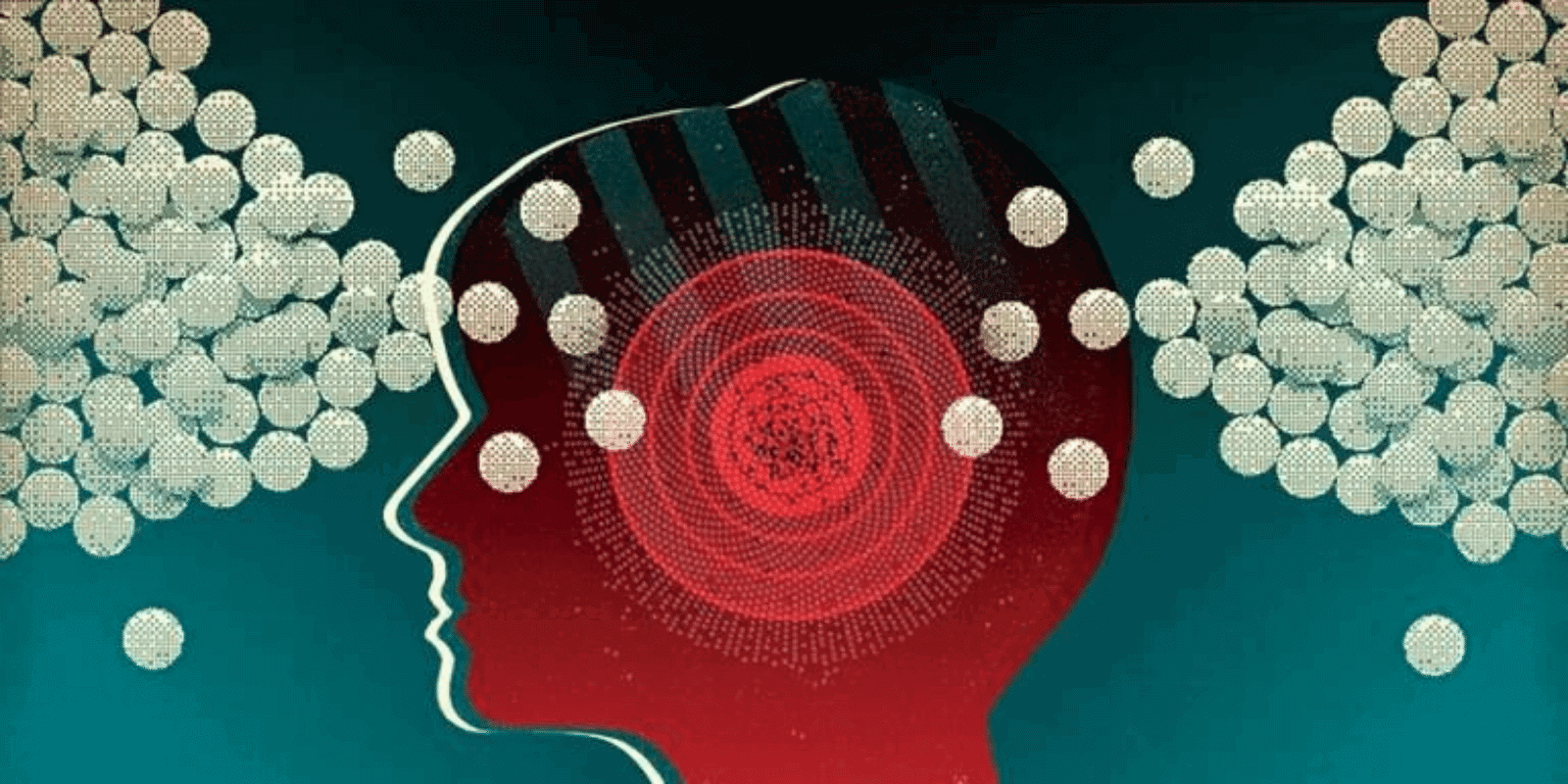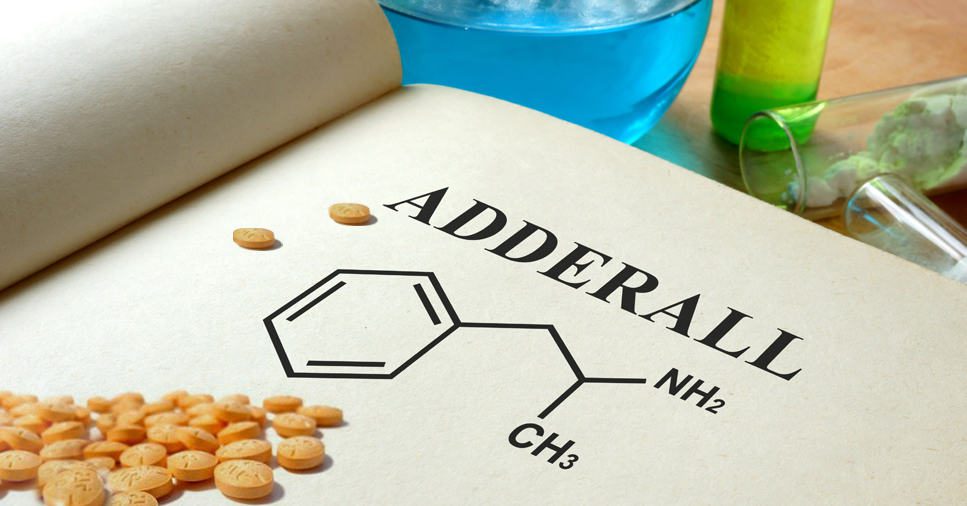How Do I Know If My Teen Has An Adderall Addiction?
Adderall is a central nervous system stimulant commonly prescribed for ADHD and narcolepsy.
It is also considered a Schedule II drug by the United States Drug Enforcement Agency. This means it has a high potential for abuse. It can also lead to severe psychological or physical dependence.
Adderall works by increasing the activity of the central nervous system.
It can help improve one’s focus, attention, executive function, and control of behavior.
However, Adderall has become a highly abused drug.
It appeals to young people because of its accessibility. Many teens who have tried Adderall and other prescription stimulants have reported getting them from a friend or someone they know that was prescribed them.
Students may try Adderall because they believe it can help their performance in school or sports. Teens may also want to try it for recreational use.
It is commonly referred to as a “study drug” and is used among high school and college students.
Study drugs are prescription stimulants that are believed to increase focus and alertness for a period of time. Study drugs like Adderall and Ritalin can be very dangerous and cause negative effects when taken without a prescription.
The misuse of substances over time can cause changes in the brain, creating a tolerance. This means that the more and more someone uses a certain drug, the more they will need to feel the effects.
Prescription stimulant use can lead to substance use disorder (SUD) and addiction.
A SUD develops when the use of a drug over time causes issues such as health problems and problems at home, work, or school.
Teens and adolescents are at a higher risk of substance use disorders and addiction because their brains are still going through major developmental changes.
If a teen is constantly needing more of the drug to feel its effects, suffering withdrawal symptoms when not using Adderall, or not being able to function without it, there’s a chance they may be struggling with Adderall addiction.
Some other signs and symptoms that your teen may be struggling with an Adderall addiction may include:
- Hyperactivity or constant need to be busy
- Engaging in risky behavior
- Changes in sleep patterns
- Changes in eating habits
- Easily agitated
- Nervousness
- Uncontrollable shaking or seizures
- Experiencing headaches
- Intense cravings for Adderall
Adderall can cause short and long-term negative effects on a teen’s physical and mental health.
Some short-term side effects of Adderall use may involve; changes in heart rate, dry mouth, restlessness, nausea, and stomach pains.
Additionally, some long-term side effects of Adderall may include:
- Irregular heart rate
- Shortness of breath
- Paranoia
- Hallucinations
- Violent or aggression
- Chest pain
- Dizziness
- Suicidal thoughts
What Does Adderall Do For Attention Deficit Hyperactivity Disorder (ADHD)?
Adderall is primarily used, and FDA approved to treat attention deficit hyperactivity disorder (ADHD).
Symptoms of ADHD may include:
- Impulsiveness
- Disorganization
- Poor time-management
- Restlessness
- Being easily distracted
- Fidgeting or hyperactivity
Adderall can help with some of the symptoms of ADHD and improve concentration and focus.
It is a prescription medication made of amphetamine and dextroamphetamine, which are stimulants.
Stimulant therapy is one of the most common treatments for ADHD. They can be used alone as a treatment or combined with behavior therapy.
According to the NIH, prescription stimulants increase the levels of dopamine and norepinephrine in the brain.
The increase of dopamine helps to transmit signals between the nerves and can help with behavior and attention span.
For those with ADHD, Adderall can be effective in helping someone gain more clarity and be able to carry out daily responsibilities and functions.
What Do Young Adults Use Adderall For?
Young adults can experience large amounts of stress from school, family life, and new transitions in their lives.
Because of this, they may feel pressure to do well in school. At times, they may try to achieve these standards at any cost. They may find it difficult to get things done or need to perform well to achieve their goals.
Young adults may misuse Adderall to improve their performance in school or sports. Whether it be to be more focused, score better on a big test, or stay up all night to study.
Teens may feel that they are not accomplishing what they want and turn to a drug like Adderall as an answer.
There is no evidence that Adderall can help with school performance, especially if you are not diagnosed with ADHD. Instead, it can cause serious negative health effects when abused.
A lot of high school students may want to experiment and try new things.
During the teenage years, individuals search for their identity. They might be under the false impression that trying drugs is a part of growing up and fall victim to peer pressure.
Adderall has been used by teens as a way to get “high” or achieve some level of “euphoria.”
For a person without ADHD or narcolepsy, Adderall can cause an excess of dopamine, creating the “high” effect.
Teens may use Adderall to cope with difficult feelings. Mental health issues are extremely common among teens and young adults. At times, they can lack healthy coping skills and turn to drugs as an outlet to make them feel better.
In some cases, Adderall can suppress the appetite, causing teens to use it as a weight-loss drug.
Eating disorders can commonly cooccur with substance use disorders.
When Adderall is mixed with other substances, it can be very dangerous. Mixing other substances can increase the risk of life-threatening overdose and serious negative effects.
Those who abuse Adderall are also more likely to abuse other drugs such as marijuana and alcohol.
Can Teens Enter Addiction Treatment For Adderall Abuse?

Yes, teens can enter addiction treatment for Adderall abuse.
When someone uses a substance like Adderall over and over again, their tolerance to the drug causes their brain to become dependent on it.
Because of this, when someone is addicted to Adderall and stops taking it, it can cause withdrawal symptoms.
Some withdrawal symptoms may include:
- Depression
- Irritability or Agitation
- Mood changes
- Extreme Fatigue
- Nausea
- Stomach aches
- Vomiting
Withdrawal from a prescription stimulant may also lead to psychosis. Psychosis is when someone loses touch with reality because of a disruption in their thoughts and perceptions.
If someone is experiencing withdrawal or struggling with Adderall addiction, it is important to reach out for professional help.
There is a difference between dependence and addiction.
Dependence refers to physical dependence on a substance. Someone can be dependent on a substance without being addicted.
An addiction can be characterized by changes in behavior caused by chemical changes in the brain after continued substance abuse.
It is also possible for someone to overdose on prescription stimulants. This can occur if someone takes enough of the drug, which causes a life-threatening reaction.
There are no current medications approved for treatment for Adderall addiction.
One of the first steps to receiving treatment is to consult with a doctor, and they can refer you to an inpatient or outpatient rehabilitation center.
Inpatient rehab can help those with moderate to severe cases of Adderall addiction. It can also be beneficial for those struggling with addiction to multiple substances.
Through rehab, you will be able to receive care and supervision while going through the withdrawal process. Rehab can also help you safely stop taking Adderall by slowly reducing the dosage over time.
Evidence-based behavioral therapies that are effective in treating Adderall addiction include cognitive-behavioral therapy (CBT) and contingency management (CM).
CBT involves positive feedback to help change behaviors. It is centered around the idea that someone’s thoughts, feelings, and actions are all connected.
CBT can be helpful because it is focused on what is happening in someone’s current life and how to develop healthy coping skills.
CM helps to correct negative thoughts by using positive cognitive-behavioral skills. In this type of behavioral therapy, individuals are rewarded for evidence of change.
Family therapy can also be helpful for teens struggling with Adderall addiction or any substance use disorder.
In some cases, addiction and SUDs are associated with problems within the family or in their home environment. Family therapy can improve relationships within the family and understand the impact of substance abuse.
Recovery groups can provide helpful support throughout the treatment process.
They can provide a safe space for people to go to and share their experiences. It can help young people relate to others and feel less alone.
Recovery groups allow the chance to learn from others’ experiences and build a strong connection with people who may be going through similar challenges.
How Much Adderall Can A Teenager Take?

The amount of Adderall meant to be taken depends on the age and type you are taking.
Adderall and Adderall XR are two different forms of Adderall.
Adderall is an immediate release drug, and Adderall XR is an extended-release drug. This means that the active ingredients will take longer to release over time compared to Adderall.
Immediate-release Adderall typically needs to be taken multiple times a day, whereas Adderall XR is taken once a day.
Amphetamines should be administered at the lowest possible dosage and then adjusted according to the individual.
The dosage may then be raised by 5 milligrams per week until the desired response of the individual is achieved.
If taking Adderall for narcolepsy, the usual dose for patients 12 and older is typically 10 milligrams a day. If needed, the dosages are adjusted to the needs of the individual by increments of 10 weekly.
What Percentage Of Students Use Adderall?

According to the 2018 Monitoring the Future College Student and Young Adults survey, the misuse of Adderall was around 14.6% among college men and 8.8 % among college women.
Additionally, according to the 2017 National Survey on Drug Use and Health
, approximately 217,000 adolescents aged 12 to 17 misused prescription stimulants for the first time in the last year.
There are three commonly used prescription stimulants which include; dextroamphetamine, dexmethylphenidate, and a combination of dextroamphetamine and amphetamines (Adderall).
How Many Students Are Prescribed Adderall?
Prescription stimulants, such as Adderall, are the most commonly used ADHD medications for children and teens. About 70 to 80 percent of children with ADHD have fewer symptoms when taking these medications.
Adderall is an effective treatment for ADHD and can be helpful when prescribed by a doctor.
Is Adderall Bad For Anxiety?
Adderall is not a treatment for anxiety and can even make it worse.
Adderall is not typically prescribed for anxiety. It would more likely be prescribed if someone with anxiety has a co-occurring disorder such as ADHD.
Adderall raises the dopamine and norepinephrine levels in your brain. When the Adderall wears off, it worsens the symptoms of anxiety and can cause negative feelings.
If taken without a prescription, Adderall causes an excess of dopamine in the brain.
A dependence on Adderall can also make someone feel anxious when they are not using it.
Dependence means you will experience withdrawal symptoms if you try to stop using Adderall.
Does Adderall Help With Overthinking?
When taken for ADHD, Adderall can help with hyperactivity and concentration.
It can help an individual focus on one task at a time and slow down thinking.
However, If taken when not prescribed, Adderall may cause fast thinking and a need to keep busy.
When prescription stimulants are abused, they can lead to unwanted and negative effects on a person’s overall physical and mental well-being.
The misuse of stimulants can take form in different ways. Someone who takes someone else’s medication when it is not prescribed to them is one way. Taking more than the prescribed dosage is also a form of misuse.
Mixing prescription stimulants with other drugs is also very dangerous and can cause life-threatening risks.
Why Do I Feel Calm On Adderall?

Adderall can help to calm people with ADHD.
One of the effects of Adderall for those with ADHD is decreased restlessness.
Adderall causes your brain to release dopamine and norepinephrine, which are chemicals that may be imbalanced because of ADHD. This change can help someone with ADHD essentially feel “normal” or calm.
If you feel calm on Adderall, it can likely mean that you have ADHD.
Is Crying A Side Effect Of Adderall?
Long-term use of Adderall may lead to changes in mood.
In some cases, prescription stimulants are prescribed to help with depression. However, Adderall is more common for ADHD and narcolepsy and may worsen the symptoms of depression and anxiety.
Although crying may not be a direct side effect of Adderall, it can cause effects that are associated with sadness and difficult emotions. Long-term use of Adderall may lead to depression, causing someone to feel extreme sadness or hopelessness.
Can Adderall Cause Aggression?
Another side effect of Adderall may include increased irritability and aggression.
Repeated use of any prescription stimulant can cause anger, even over a short period.
Additionally, if someone is experiencing withdrawal from Adderall, it can cause difficult feelings and emotions.
Because Adderall alters the chemical levels in the brain, a person can have intense cravings for that drug. That could be frustrating for the person experiencing withdrawal and cause them to become easily irritated or upset.
Another withdrawal symptom includes the inability to feel pleasure. Adderall affects the dopamine and norepinephrine levels in the brain.
Dopamine allows someone to feel pleasure and satisfaction. It plays an important role in the brain’s “reward center” and affects bodily functions such as mood, motivation, and emotional response.
When people feel good, it’s because of a surge of dopamine in the brain. The brain of those who use Adderall becomes used to heightened levels of dopamine, and over time their brain will need more of it to feel good and feel “normal.”
Can Adderall Change Your Personality?

Adderall may cause changes in personality, mood, and behavior.
Someone who becomes dependent on Adderall may experience effects that have an impact on their personalities.
Some side effects of Adderall may include; a loss of appetite, insomnia, fatigue, lack of motivation, inability to concentrate, and mood swings.
These side effects can make someone act differently than they normally would.
Long-term abuse of Adderall can also lead to very serious side effects like psychosis.
Psychosis describes the condition where one loses contact with reality. For someone going through psychosis, their thoughts and perceptions are altered, and it could be difficult to understand what is real and what isn’t.
Psychosis can affect behavior and may make someone act inappropriately in certain situations.
It can also lead to social withdrawal and cause someone to want to isolate themselves.
Adderall abuse among teens can lead to serious negative health effects. Behavioral therapy can help Adderall addiction in teens. Sandstone Care is here to support teens and young adults with substance use disorders and mental health issues. Call (888) 850-1890.


